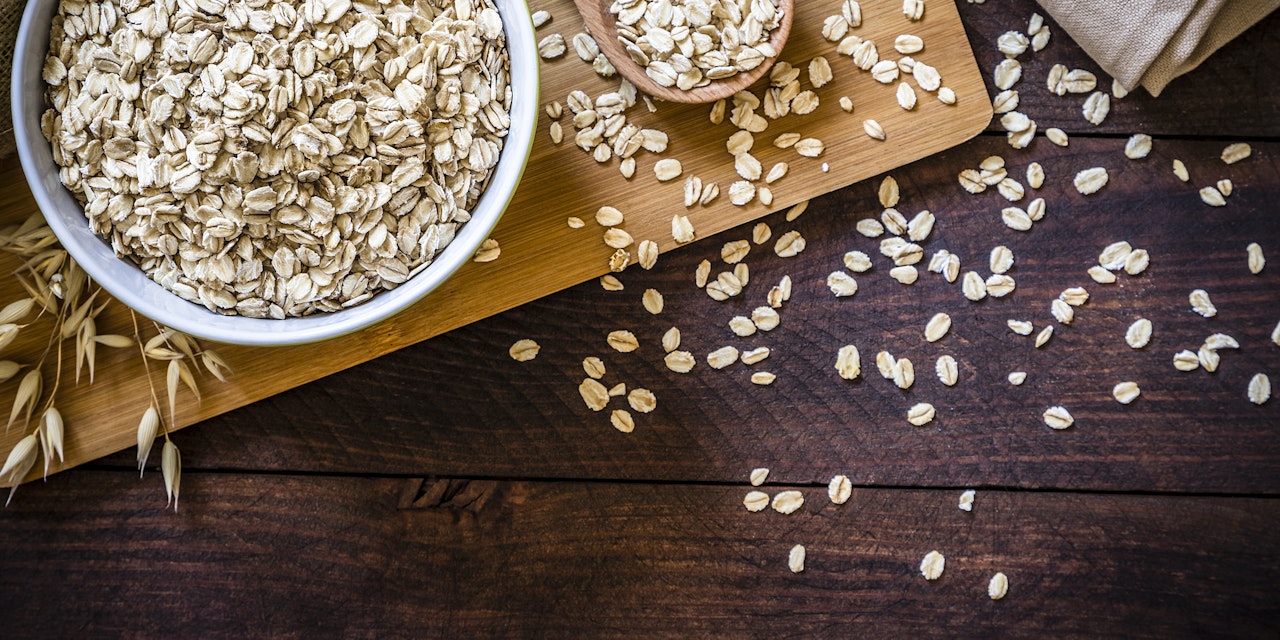All You Need to Know about Oats
Oats are a retro food that deserves to be rediscovered. Find out all you need to know about which oats are optimal to tasty recipe techniques.
- Published: 2/11/2021
- Categories:
- 4 min. read

- Published: 2/11/2021
- Categories:
- 4 min. read
Regaining popularity in the health and wellness club, oats are a retro food that deserves to be rediscovered. These ancient healthy whole grains contain vitamins, minerals, and filling fiber to keep your gut going and heart healthy. This article teaches you all you need to know about oats, from which options are optimal to tasty recipe techniques.
Health benefit of oats
Oats are one of the healthiest grains out there. They are whole grains which means they contain the entire grain kernel. In comparison, refined grains (white bread, white flour, white rice) have had the bran and germ removed.
Whole grains are rich in fiber and nutrients such as magnesium, zinc, iron, vitamin E, and healthy fats, which help support energy and heart health. People who eat more whole grains tend to have a decreased risk for heart disease, stroke, diabetes, cancer, and digestive issues (1).
Oats are rich in soluble fiber. This type of fiber helps slow digestion, keeping you full for longer (2). So oatmeal can be helpful for people trying to lose weight and improve energy levels. The Food and Drug Administration (FDA) allows foods that contain soluble fiber from whole grain oats to use a health claim, promoting it can reduce the risk of heart disease (3).
Types: from groats to oats
Oats come in all kinds of shapes and sizes with varied textures and cooking times. The health content of the plain types (without added sugar or flavoring) is comparable, but the time it takes for them to be digested can vary.
The least processed types are groats or steel-cut oats. Since these take the longest to digest, they offer a lower glycemic index than rolled or instant oats (4). Glycemic index is a score that rates how quickly sugar or carbohydrates raise your blood sugar. Keeping glycemic index to a minimum may be helpful for people trying to monitor their blood glucose, such as with diabetes, or those trying to lose weight (5).
Check out these oat options:
- Groats: whole oat kernels with only the loose, inedible hulls removed.
- Oat bran: contains most fiber in a groat.
- Steel-cut: also known as Irish oats. Oat groats cut into smaller pieces so they don’t take as long to cook.
- Scottish: oat groats that have been stone-ground, making a porridge texture when cooked.
- Rolled: also known as old-fashioned. Oat groats that are steamed, rolled, and pressed into flakes. Then they are dried.
- Quick: also known as instant. Oat groats that are steamed for longer than the rolled ones. These are pressed into smaller pieces so they can be cooked quickly (6).
Look at the label
Just because you’re eating oats doesn’t mean they’re healthy. Like many processed foods, there can be hidden sugars and artificial ingredients. By decoding your food label you can identify which oats are healthier.
Many brands of instant oats come sweetened or flavored. Some flavored packets of instant oats, such as apple cinnamon or maple syrup, contain up to 10-15 grams of sugar per serving! Even the reduced sugar versions have about 5 to 6 grams per packet.
Too much added sugar can lead to health problems such as weight gain, obesity, type 2 diabetes, and heart disease. The American Heart Association recommends that men consume no more than 9 teaspoons (36 grams) and women 6 teaspoons (25 grams) of added sugar per day (7).
If you’re curious about tracking your sugar intake, try out a trusted nutrition app.
Do oats contain gluten?
Oats themselves don’t contain gluten, however they can be exposed to other gluten containing ingredients. The equipment used for harvesting and processing oats are usually used for gluten-containing foods. If you have celiac disease or are on a gluten-free diet, look for oats labeled as “gluten-free”.
Oat-standing recipes
Want to start incorporating oats into your life? Check out a few oat-standing recipes:
A high protein diet can help keep you full. Add some protein packed plant-based peanut butter and egg into your bowl and you’ll be feeling energized and ready to take on the day without those bothersome snackies.
Life gets busy enough! Whether you’re in need of a healthy to-go breakfast or satisfying snack, these overnight oats to the trick. Plus it's packed with blueberries which are high in antioxidants, that can help fight age-related damage.
Blueberry Oats with Mango & Kiwi
Get tropical with this fruit filled sweet yet healthy treat. Kiwi, mango, and blueberries offer vitamin C, which helps your collagen formation and keeps your immune system working optimally.
7 references (hide)
All of the content and media on Lifesum is created and published for information purposes only. It is not intended to be used as a substitute for medical advice or treatment. Users should always consult with a doctor or other health care professional for medical advice. If you have or think you are at risk of developing an eating disorder, do not use the Lifesum app and seek immediate medical help.